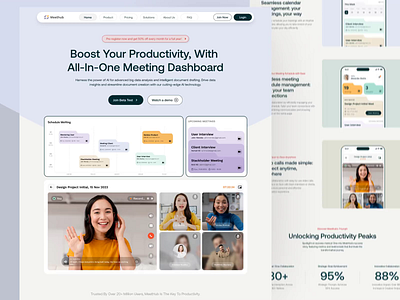The best daily routine for a software engineer involves a structured schedule balancing work, self-improvement, and relaxation. Priority is given to focused coding sessions, continuous learning, and physical wellness.
Embarking on a career in software engineering requires dedication not only to code but also to personal and professional growth. Establishing a daily routine is crucial for maximizing productivity and maintaining work-life balance. Successful software engineers often start their day early, incorporating a mix of exercise, goal-setting, and focused work blocks.
They engage in proactive learning, keeping abreast of the latest technological advancements and coding practices. Time management is essential, with breaks scheduled to maintain mental agility. After work, activities such as networking, hobby projects, or leisure pursuits contribute to a well-rounded lifestyle. Understanding that rest is equally as important as work, they prioritize quality sleep to recharge for the upcoming day. Such a disciplined and balanced routine fosters a healthy, sustainable career in software development.
Embracing The Coding Lifestyle
The Software Engineer’s Mindset
A software engineer’s mindset revolves around problem-solving and continuous learning. Coding is not just writing lines of code; it’s about developing solutions that impact the world. To think like an engineer, embrace challenges and always be ready to adapt and improve.- Set clear goals for each day
- Keep learning new technologies
- Practice coding regularly
- Review and optimize code
Balancing Work And Personal Life
Achieving a healthy balance between work and personal life is vital. Software engineers need to manage time effectively and ensure they have moments of relaxation. This balance leads to better code quality and overall happiness.| Time of Day | Activity |
|---|---|
| Morning | Focus on challenging tasks; creativity peaks |
| Afternoon | Collaborative work; meetings and code reviews |
| Evening | Unwind and reflect; personal development |

Credit: dribbble.com
Morning Routines That Fuel Success
Early Risers Vs Night Owls
Waking up early unlocks hours for personal development. Early risers often report increased productivity. They tackle challenging tasks without distractions. On the other hand, night owls may find energy peaks in the evening. Finding your optimal time is crucial. What matters most is establishing a consistent routine that suits your internal clock.Exercise And Meditation
Morning exercise kick-starts the metabolism. It improves focus and energy levels. A brisk walk or a session at the gym can work wonders. Meditation and mindfulness also play a role. They clear the mind, reduce stress, and enhance cognitive function. Together, these practices can supercharge a software engineer’s morning.Strategic Breakfast Choices
| Breakfast Type | Benefits |
|---|---|
| High-protein | Sustained energy |
| Whole grains | Improved concentration |
| Fresh fruits | Quick glucose boost |
Optimizing The Commute
Podcasts And Audiobooks For Learning
Listening to podcasts and audiobooks holds great benefits. It’s a hands-free way to absorb knowledge. Here are smart options to consider:- Technology podcasts: Stay updated with tech trends.
- Self-improvement books: Grow personal skills on-the-go.
- Coding tutorials: Listen and learn new programming concepts.
Public Transport Vs. Driving
The choice between public transport and driving carries different advantages.Public Transport:- Free hands for reading or coding.
- Opportunity to network with fellow commuters.
- Reduces carbon footprint, supporting eco-friendly practices.
| Method | Learning Potential | Productivity Level |
|---|---|---|
| Public Transport | High | Variable |
| Driving | Low to Medium | Low |
The Power Of Structured Work Blocks
Focused Coding Sessions
Focused Coding Sessions are the heartbeat of a productive engineer’s day. During these sessions, distractions vanish. Code flows seamlessly from thought to reality. Here’s how to maximize these precious hours:- Plan tasks beforehand to dive straight in.
- Use tools like IDE plugins to keep focus sharp.
- Track progress with commit logs or task lists.
Time For Deep Work
Deep Work is where complex problems meet their match. Engineers need uninterrupted time to tackle challenging code. Here’s a peek into creating Deep Work periods:- Schedule 2-3 hour blocks dedicated to a single task.
- Mute notifications to avoid interruptions.
- Clarify goals for each session to work with purpose.
Breaks And The Pomodoro Technique
Breaks are not a sign of weakness; they’re a strategy. The Pomodoro Technique champions frequent short breaks to maintain a sharp mind. Here’s how to incorporate it:| Work Duration | Break Duration |
|---|---|
| 25 minutes | 5 minutes |
| After 4 cycles, take a 15-30 minute break. | |
- Use a timer to track sessions.
- Stand, stretch, or walk during breaks for a refreshed mind.
Essential Tool Mastery
Version Control Systems
Mastering version control systems is non-negotiable for software engineers. Popular systems like Git enable collaboration and tracking changes across projects.- Git: The backbone of modern code management
- GitHub/GitLab/Bitbucket: Platforms for repository hosting
- Merge Conflicts: Understand how to resolve them
Integrated Development Environments
Integrated Development Environments (IDEs) streamline coding tasks. They offer code suggestions, debugging, and testing frameworks.- Visual Studio Code: Versatile and widely adopted
- IntelliJ IDEA: Preferred for Java and Kotlin development
- PyCharm: Ideal for Python programmers
Productivity Apps
Boost your efficiency with productivity apps. Time management and task tracking are crucial for project success.| Tool | Benefit |
|---|---|
| Notion | Organize notes and tasks |
| Slack | Communication made easy |
| Trello | Visualize project workflows |

Credit: www.linkedin.com
Staying In The Zone With Workspace Zen
Organizing For Efficiency
A well-organized desk sets the tone for a productive day. Start by grouping similar items together:- Note-taking tools: notebooks and pens
- Electronics: laptop, monitor, and accessories
- Personal items: a plant or a photo for motivation
Physical And Digital Cleanliness
Clutter can break your concentration. A clean desk helps you to think clearly. Schedule regular cleaning:| Frequency | Task |
|---|---|
| Daily | Clear desk surface |
| Weekly | Dust electronics |
| Monthly | Deep clean workspace |
Learning And Personal Growth
Continuous Skill Acquisition
Growth thrives on learning new skills. Every morning, set aside time for educational activities. Read articles or take online courses. Even a quick 15-minute tutorial before work can boost skills.- Read tech blogs during breakfast.
- Listen to a developer podcast on your commute.
- Complete online course modules before bed.
Lunchtime Learning
Lunch breaks offer a perfect opportunity to learn. Engage with peers or watch educational videos. Lunchtime learnings can be relaxed but immensely beneficial.| Monday | Wednesday | Friday |
|---|---|---|
| Join a webinar. | Discuss a new technology with a colleague. | Read a chapter from a technical book. |
Side Projects For Experimental Learning
Side projects push boundaries and instill practical skills. Allocate time for personal coding endeavors. They encourage problem-solving and innovative thinking.- Implement new technologies in your project.
- Build a prototype of a new app idea.
- Contribute to open source to give back and learn.
Connecting With Colleagues
Effective Communication
Clear exchanges forge strong ties. Start by setting daily check-ins with your team. Use tools like Slack or Teams for quick updates. Remember, concise emails save time. Try these tips:- Sum up points in bullet form.
- Use to highlight urgent tasks.
- Choose clear subject lines for emails.
Team Building Activities
Fun outside work connects teams deeply. Monthly team outings or game nights can build friendships. Even a simple daily trivia quiz energizes crews. Here’s how fun activities can look:| Activity | Frequency | Benefit |
|---|---|---|
| Lunch Roulette | Weekly | New Bonds |
| Escape Rooms | Quarterly | Problem Solving |
| Code Jams | Monthly | Creativity |
Afternoon Checkpoints
Self-review Sessions
Regular self-review ensures ongoing progress. Here’s how to do it right:- Check your code: Ensure quality with a quick code review.
- Test changes: Run tests on recent work to catch any issues.
- Reflect on goals: List accomplishments and set new targets.
Adjusting Tasks For The Day
No day is the same. Flexibility is key. Adjust your tasks like this:| Plan Item | Status | Action |
|---|---|---|
| Feature Development | In Progress | Continue with focus |
| Bug Fixes | Pending | Schedule time to tackle |
| Team Meeting | Upcoming | Prepare updates |
Handling The Mid-day Slump
Snack Smart For Energy
A smart snack can boost your brain power. Your body needs fuel to function well. Pick snacks rich in protein and fiber.- Nuts and seeds give you lasting energy.
- Fruit like apples or bananas give quick, natural sugars.
- Whole grain toast with avocado is tasty and filling.
Short Walks And Stretching
Sitting too long can make you tired. Get up from your desk every hour. Take a short walk. Go to the water cooler. Stretch there.| Activity | Duration |
|---|---|
| Desk stretches | 5 minutes |
| Walk around the office | 5-10 minutes |
Effective End-of-day Practices
Documentation And Note-taking
Proper documentation is the cornerstone of a productive software engineering routine. The benefits of this practice are multifold:- Clarity in your code for future reference.
- Avoiding duplicity of work efforts.
- Assisting co-workers in understanding your thought process.
Preparing For The Next Day
Preparation sets the tone for tomorrow. Follow these steps to prime yourself:- Review your to-do list for pending tasks.
- Define priority items for your next workday.
- Set clear goals to kickstart the morning with focus.
Unwinding After Work
Tech Detox Time
Stepping away from screens is a game-changer. Begin your evening with a tech detox. This means no phones, no laptops, just You-Time.- Read a book.
- Take a short walk outside.
- Enjoy a peaceful meditation session.
Hobbies And Relaxation Techniques
Engaging in hobbies helps recharge your creative batteries. Pursue a passion that’s non-technical to balance your work-life equilibrium.| Hobby | Benefits |
|---|---|
| Painting | Boosts creativity and reduces stress. |
| Playing an instrument | Improves concentration and relieves anxiety. |
| Gardening | Supports mental health and promotes relaxation. |
- Breathing exercises.
- Guided imagery.
- Progressive muscle relaxation.
Healthy Dinner Habits
Meal Prep For Convenience
Meal prep means you save time and eat healthy. It simplifies dinner after a busy day coding. Here’s how to efficiently prep:- Choose simple recipes with fewer ingredients.
- Cook in bulk on weekends to last through the week.
- Use quality containers to keep meals fresh.
| Day | Meal | Ingredients |
|---|---|---|
| Monday | Lentil Soup | Lentils, Vegetables, Spices |
| Tuesday | Stir-Fry | Chicken, Broccoli, Peppers |
Nutrition For Cognitive Function
Good nutrition is key for a sharp mind. Include these in your dinner:- Omega-3 fatty acids from fish improve brain power.
- Antioxidants in berries aid memory.
- Leafy greens help prevent cognitive decline.
Evening Rituals For Better Sleep
Screen-time Limitations
Limiting screen time before bed helps signal your brain to wind down. The blue light from screens can interfere with your sleep cycle. Embrace a digital curfew.- Turn off electronic devices 1 hour before bed.
- Opt for a book or calm music instead of scrolling on your phone.
- Use blue light filters on devices, if necessary.
Sleep Hygiene
Creating a tranquil bedroom environment is essential for sleep hygiene. Ensure your sleeping area is cool, quiet, and dark. Invest in a comfortable mattress and pillows. Keep a consistent bedtime to regulate your body’s internal clock.| Action | Reason |
|---|---|
| Avoid caffeine late in the day | Prevents restlessness |
| Evening meditation or relaxation | Reduces stress and prepares the body for sleep |
Networking And Professional Development
Social Media Engagement
Engage with the tech community through social media each day. Start with a 15-minute session where you:- Follow industry leaders on platforms like LinkedIn or Twitter.
- Join discussions by commenting on relevant posts.
- Share your own insights or articles you find interesting.
Attending Meetups And Conferences
Set aside time in your routine for personal growth. Aim for at least one event a month. You can:- Search for local meetups on platforms like Meetup.com.
- Register for webinars or virtual conferences in your field.
- Attend industry-leading conferences to learn and network.
The Weekend Reset
Recharging For The Week Ahead
Finding time to recharge is crucial. Use the weekend to step away from screens and keyboard. Engage in activities that rejuvenate both body and mind. Consider:- Outdoor activities like hiking or cycling
- Practicing mindfulness through meditation or yoga
- Enjoying quality time with family and friends
Pursuing Passion Projects
The weekend is the perfect time to dive into passion projects. This creative outlet can be incredibly rewarding and a great way to sharpen skills. Activities include:| Project Type | Benefits |
|---|---|
| Open Source Contributions | Build a stronger coding portfolio |
| Personal Coding Projects | Explore new programming languages |
| Tech Blogging | Share knowledge, gain visibility |
Annual Routines And Vacations
Long-term Goal Setting
Setting goals each year guides engineers toward career milestones. A table like the one below helps organize these objectives:| Time Frame | Goals | Actions |
|---|---|---|
| Quarter 1 | Learn a new programming language | Enroll in an online course |
| Quarter 2 | Contribute to open-source | Select a project and start contributing |
| Quarter 3 | Improve soft skills | Join a local Toastmasters club |
| Quarter 4 | Earn a certification | Study for and pass a relevant exam |
Importance Of Taking Breaks
Vacations renew focus and prevent burnout. They are crucial. Plan breaks throughout the year. Here’s an example list:- Winter: Ski trip to recharge
- Spring: Local hiking adventures
- Summer: Beach holiday for a full disconnection
- Fall: Cultural city break to spark creativity

Credit: www.simplilearn.com
Cultivating Resilience Amidst Setbacks
Adapting To Failures
Encountering failure is a part of the software development journey. Accepting and learning from these setbacks defines a resilient engineer. Regular reflection on one’s work, asking for feedback, and setting actionable goals after a project hiccup encourages growth and better outcomes in the future.Stress Management Techniques
Stress is a familiar foe for many in the tech industry. To combat its effects, engineers can incorporate several techniques into their daily routine:- Mindfulness and meditation – Taking short breaks to practice mindful breathing can restore focus.
- Physical exercise – Engaging in regular physical activity releases endorphins, boosting mood and energy levels.
- Time management – Allocating specific time slots for tasks helps avoid work overload.
- Healthy eating – A balanced diet fuels the body and the mind for optimal performance.
- Social support – Connecting with peers for advice and encouragement strengthens resilience.
Frequently Asked Questions On Best Daily Routine For Software Engineer
What Is A Typical Day For A Software Engineer?
A software engineer’s typical day involves coding, attending meetings, troubleshooting software issues, collaborating with team members, and reviewing code. They might also engage in designing systems and updating existing software, all while ensuring optimal functionality and user experience.
How Many Hours A Day Do Software Engineers Actually Work?
Software engineers typically work between 8 to 10 hours per day, aligning with the standard full-time work schedule, but exact hours may vary based on company policy and project demands.
What Is The Typical Work Schedule For A Software Engineer?
Software engineers typically work 40 hours per week, often with flexible scheduling options. Some may work overtime to meet project deadlines or address critical issues.
What Is The Daily Schedule Of A Programmer?
A programmer’s daily schedule typically includes coding, debugging, attending meetings, reviewing code, and collaborating with team members. They often participate in stand-ups, strategize problem-solving, and engage in continuous learning. Breaks and administrative tasks also punctuate their day.
What Does A Software Engineer’s Day Involve?
Software engineers typically start with code reviews, attend stand-up meetings, write or debug code, and often collaborate with cross-functional teams.
Conclusion
Crafting an optimal daily routine is vital for software engineers aiming to boost productivity and maintain well-being. Incorporate these strategies to balance work, life, and code mastery. Embrace this blueprint and transform your professional journey into one marked by success and satisfaction.
Keep iterating to find your perfect routine!










